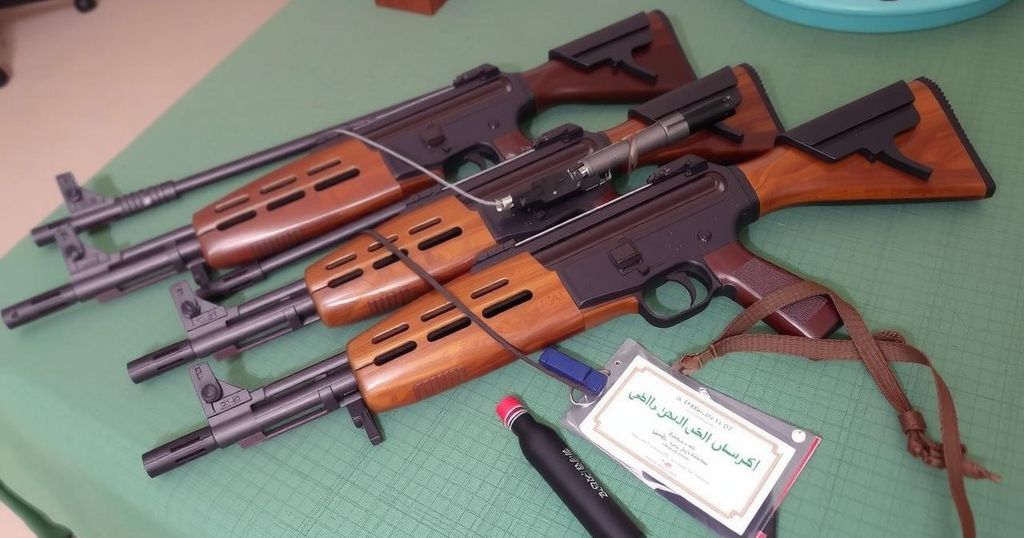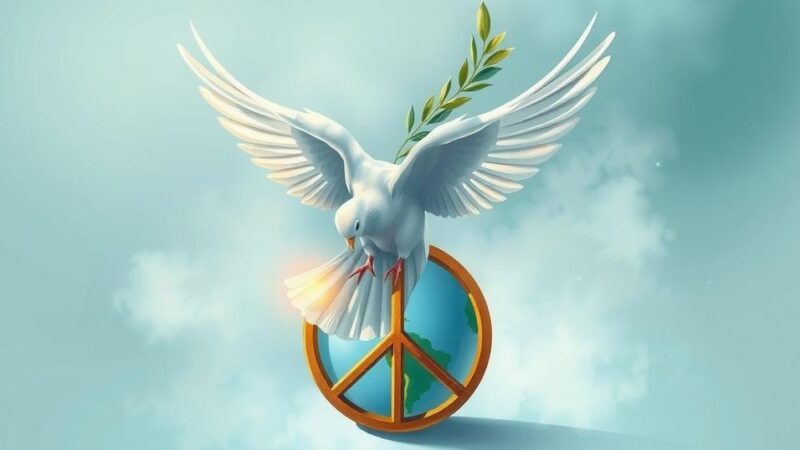Videos have surfaced showing Emirati weapons in Sudan’s Wad Madani after its capture by the Sudanese military. The RSF acknowledged defeat but vowed to regain control. The conflict has led to significant displacement and famine risks, prompting international concern and U.S. sanctions against RSF leaders. The UAE faces allegations of supporting the RSF despite denying claims of arms shipments.
Recent reports have emerged detailing the discovery of substantial caches of Emirati-sourced weapons in Wad Madani, Sudan, following the recent capture of the strategic city by the Sudanese military. Viral videos display soldiers inspecting a warehouse filled with ammunition and missiles, with claims attributing the origin of these weapons to the United Arab Emirates (UAE). Despite inquiries, the UAE’s embassy in Washington, D.C. did not respond to requests for comment regarding the arms.
On Saturday, the Sudanese military announced that it, alongside allied forces, successfully regained control of Wad Madani, which had been under the influence of the Rapid Support Forces (RSF) for approximately one year. This RSF is engaged in an ongoing civil conflict with the Sudanese army that began in April 2023. RSF leader Mohamed Hamdan Dagalo, commonly known as Hemedti, conceded defeat in capturing the city but expressed intentions to reassert control. “We lost Wad Madani, but we will reclaim it. People just need to regroup, reorganise and reassess themselves,” Hemedti stated.
The violence in Sudan has resulted in the displacement of over 11 million individuals, with the United Nations reporting that more than eight million people are nearing famine. The U.S. government recently designated the ongoing situation as genocide and initiated sanctions against Hemedti and his family. The RSF is facing numerous allegations of human rights violations and atrocities, including sexual assaults. The ongoing conflict has led to both factions profiting through the illicit trade of essential resources such as food and medicine.
Foreign intervention in the conflict is significant, with the UAE reportedly providing support to the RSF. Prior reports indicate that Emirati military backing has sustained the RSF’s operations. A UN report cited allegations that the UAE has facilitated arms supply into Sudan through an airstrip in Chad. While the UAE asserts it supplies humanitarian aid to Sudan, it has denied claims of arms shipments. Moreover, a Western official suggested that many U.S. officials consider the UAE an “enabler” of the conflict but noted that the administration had been too distracted to hold Abu Dhabi accountable adequately.
This ongoing situation in Sudan is intricate and shaped by both domestic power struggles and international political dynamics, raising concerns over regional stability and humanitarian crises.
The ongoing civil war in Sudan, which erupted in April 2023, features a conflict between the Sudanese army and the paramilitary Rapid Support Forces (RSF). Key cities like Wad Madani have seen intense battles for control. The RSF, led by Mohamed Hamdan Dagalo, has been heavily criticized for its human rights abuses and atrocities. Foreign involvement, particularly from the UAE, has been speculated to play a crucial role in sustaining the RSF amidst international condemnation and humanitarian crises resulting from the conflict.
In summary, the emergence of Emirati weapons in Sudan’s Wad Madani underscores the complexities surrounding foreign involvement in the ongoing civil war and its humanitarian impact. The Sudanese military’s recent gains against the RSF signal a shift in control, yet the underlying issues, including human rights abuses and international complicity, remain pressing concerns. Continued monitoring and action from the global community will be essential in addressing the deteriorating situation in Sudan.
Original Source: www.middleeasteye.net






